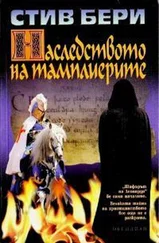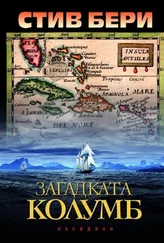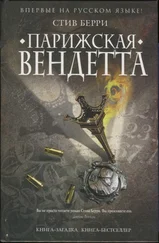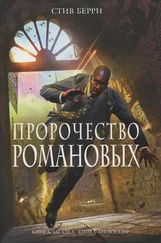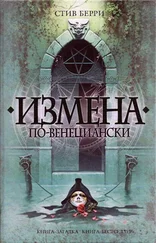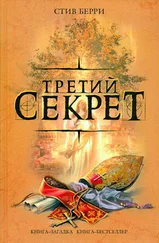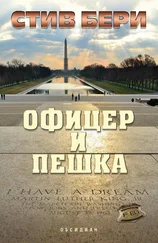Even worse.
“Then she took him to her house. I could not get near them without being seen.”
So they had no idea what else was said.
Ada was, at best, difficult. That’s why he’d ordered the extra surveillance as an added measure of assurance. He’d had no choice but to involve her. It was imperative that the messenger be of the right age and right nationality. Nearly all of the Originals were dead. Only a handful remained, and none in the lake district save for Ada.
“They stayed inside the house for about thirty minutes, then Malone left, carrying a plastic bin.”
Containing what? Another disturbing piece of information.
“Anything else?”
His minion shook his head. “It’s been quiet ever since.”
Which left only one course.
He motored back to the highway and drove the remaining mile to the Church of Our Lady. He found the cottage out back and stormed in through the front door without knocking. The old woman was perched on a large couch with blue satin cushions.
Waiting.
“You think yourself so clever,” he said in German.
“I have known you far too long, Josef.”
“Why was it necessary to mention Africa? Or Herr Pohl? What are you doing, Ada?”
“Why was it necessary to spy on me?”
“So I can be aware of your treachery.”
“Your Kaiser will not succeed.”
His fears were rapidly becoming reality.
She continued to sit still, at moments seemingly far away in another place. He kept his voice calm and asked, “What did you tell him?”
“I told him that Bormann and Braun went to Africa.”
“He was supposed to learn that the son died here, nothing more.” Everything he’d so carefully planned seemed now in dire jeopardy. He needed to know something else. “What of the container he left with? What did you give him?”
“Information he needed to know.”
Never had she been this emboldened in the past. “What’s changed, Ada?”
Her gaze knifed through him. “Everything. And you changed it, Josef. When you shot Isabel. For no reason, other than to protect your precious web. I appreciate you granting me the opportunity to right that wrong.”
“You never said a word about Isabel when it happened.”
“No. I simply buried her, then vowed that when presented with the right opportunity, I would avenge her death. Unlike yourself, I knew the Brown Eminence. He was a dreadful man. But I learned from him about keeping things to myself.”
And she’d done an excellent job.
“It was necessary for that old woman to die,” he said to her. “The Americans had to be convinced.”
“Her name was Isabel. She was a dear person. My close friend. She only participated in that endeavor as a favor to me.”
His patience was wearing thin. He’d obviously made a huge mistake involving this old woman, and he was going to have to answer to Theodor Pohl for the miscalculation. At a minimum their timetable was disrupted. At worst, the whole endeavor could collapse. And the election was fast approaching. Pohl was not accustomed to catastrophic mistakes.
Nor was he.
And the bitter soul calmly staring at him had just dealt them both a deep blow.
She fixed him with a glare that signaled nothing but hate and resentment. “I hope you, your Kaiser, and the Brown Eminence all rot in hell.”
Ada’s job had been to stage the hacienda, planting the photographs and other memorabilia, then spur Malone and Vitt along, reconnecting today and informing them that the son of Martin Bormann and Eva Braun, supposedly shown in one of the pictures, was dead. After that, the next stage of his carefully crafted konundrum was already in place, ready, but it would now have to be postponed indefinitely. He could not allow this woman any more opportunities with Malone.
Time to end the problem.
He reached beneath his jacket and palmed the grip of the Browning automatic he’d obtained yesterday in Santiago. No sense belaboring the point. He aimed the pistol.
And heard a click.
Behind him.
He turned.
Standing in the archway to the dining room were two men, both with rifles aimed at him. The same two fair-haired youths who’d shot at the hacienda yesterday from the pickup truck, hired to keep Malone and Vitt moving along.
“I think not, Josef,” Ada said.
He lowered his gun.
“I am not Isabel,” she declared. “And killing you here and now is not enough to satisfy my anger. Instead, I want you to taste failure. Then the Kaiser will deal with you. Tell him that this will not turn out as he planned.”
He felt the power of the threat, and realized she meant every word.
“His web will be broken.”
CHAPTER TWENTY-NINE
3:30 P.M.
Cotton returned to the chalet outside Los Arana. His carabinero babysitter gave him a curious look when he plopped the plastic bin down on the tile floor beside the dining room table. He’d stopped in town along the way and grabbed a quick lunch. He still had not heard from Cassiopeia and was curious about what was happening in Santiago, but he assumed she’d check in when there was something to report.
He dragged a chair close to the table, bent down, and opened the container, which was filled with faded-white envelopes, all addressed to Ada and bearing postage stamped SAU.
He recognized that designation.
South African Union, the name of the country prior to its late-20th-century political reform into the Republic of South Africa. He lifted the top envelope from the stack and withdrew three sheets of pale-blue paper, each in remarkably good condition.
He gently opened the folds.
The writing was all German, in a feminine scroll. He read the first paragraph, but the text was tough to translate. Not the fluid German he was accustomed to seeing. This was rougher, the words more difficult to associate. Like what slang could do to English.
The carabinero ambled over.
“Won’t do me much good,” Cotton said to the policeman. “I can only understand so much of this.”
The man glanced down over his shoulder. “I hope this note finds you in good health. It is a shame I cannot say the—”
“Apparently you don’t suffer from my infirmity.”
“That’s Old German. I studied language at university.” He seemed proud of the accomplishment. “It can be difficult, if not accustomed to the verbiage.”
“Then maybe you could assist?”
The man smiled. “That’s why I am here.”
“Pull up a chair and start reading out loud.”
Cotton glanced at his watch.
Nearly 7:00 P.M.
He’d been listening to the carabinero for nearly three hours. The letters were all apparently written by Eva Braun, signed in the alias of Rikka Soreno, the name Ada had mentioned earlier. They had been sent to Ada from the latter part of 1949 to 1952. Apparently Braun and Bormann fled Chile in 1947 to live in the Orange Free State, part of the then South African Union. He was amazed at their choice of refuge, his memory recalling details about what was now simply called the Free State.
Dutch white settlers, Boers as they were eventually labeled, fled to a region in northwest South Africa during the 18th century. They obtained independence from Britain in the mid-19th century when they created a Boer Republic dedicated to white rule and racial segregation. Even for a nation married to apartheid, Orange Free State politics was right of right. Women could not vote. Africans possessed no privileges. Asians could remain within the country no longer than twenty-four hours. A bloody war with England at the turn of the 20th century finally imposed subordination. But it was only in the 1990s, when the African National Congress assumed power, that the state was purged by a black-majority government and renamed, dropping the Orange, which carried connotations of a Dutch racist past.
Читать дальше


